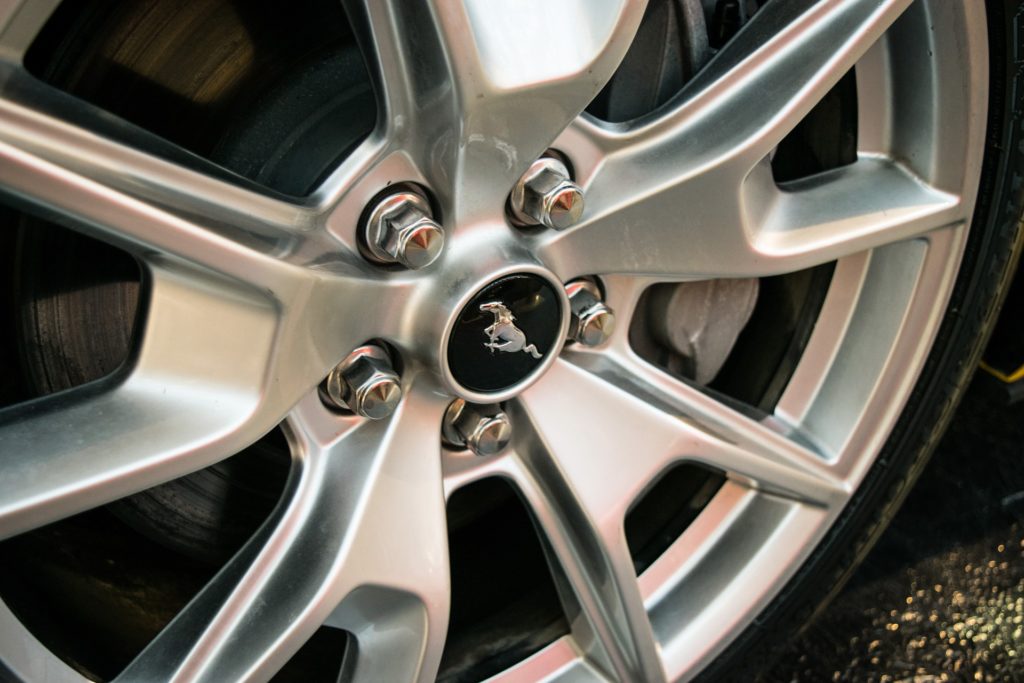Wheel reconditioning is a very dangerous practice.
Ford is very clear that the company does not approve of any wheel repair that involves reconditioning.
If you are not familiar with wheel reconditioning, it is a process of using various tools and methods to try to repair a damaged wheel, instead of replacing it entirely. Some methods include welding, reforming, or reshaping the wheel.
When it comes to steel and aluminum wheel repair, Ford has issued a Position Statement explaining why they do not accept wheel reconditioning in any vehicle repairs. Here’s what they say:
“Ford Motor Company does not approve the remanufacturing/refinishing of steel or aluminum wheels when it involves re-machining, re-plating, welding, bending, straightening, reforming or adding new material other than cosmetic coatings, as this can compromise the structural integrity of the wheel and safety of the vehicle. A reconditioned wheel, or any wheel not approved by Ford Motor Company, may cause unsafe vehicle operation and performance, including loss of control which may result in injuries to the vehicle occupants or other drivers.”
Ford is saying, in no uncertain terms, that it’s simply not worth the risk to your life to take chances with the state of your wheels.
In its position statement, the company provides an extensive list of types of wheel damage to inspect for and these include cracks, corrosion, gouges, and other issues that are beyond superficial marks. If the wheels are damaged enough to warrant reconditioning, then they should just be replaced outright.
Heating, welding, reshaping, and any other methods of reconditioning could compromise the structural integrity of your wheels.
Being the only parts of the car to actually make contact with the road, your wheels are essential to your safety and are worth investing in.

What wheel repairs are approved by Ford?
While wheel reconditioning is not approved of by Ford, certain wheel repairs are permitted:
“Ford Motor Company approves refinishing of steel or aluminum wheels only if all necessary repairs/reconditioning can be completed by cosmetic sanding or polishing that removes no metal and, instead, removes only the finish.”
Basically, only superficial cosmetic adjustments are allowed, since they won’t jeopardize the integrity of the wheel structure. Minor sanding and polishing repairs do not involve the use of heat or reshaping that reconditioning would entail.
Don’t risk voiding your warranty.
Another major reason to avoiding wheel reconditioning is that it can void your warranty:
“Ford Motor Company does not warrant any remanufactured/refinished wheels.”
The practice of wheel reconditioning is so problematic that Ford won’t even warrant wheels that have been repaired with this method. Not only is wheel reconditioning dangerous to your vehicle and yourself—it’s dangerous to your wallet, as well.

Not all shops follow these recommendations, but we do.
It’s disappointing, but some shops throw caution out the window and continue to practice wheel reconditioning, despite Ford’s clear instructions to avoid it at all costs. They can get away with this because no body shop is actually forced to adhere to a manufacturer’s Position Statement.
At our shop, we strongly believe that there’s no reason to take a chance with your Ford’s repair by going against the advice of the manufacturer.
Reconditioned wheels can lead to very dangerous problems down the road. We will always replace your Ford’s wheels entirely if they’ve sustained damage. You won’t have to worry about voiding your warranty or driving on unstable wheels when you bring your vehicle to us.
We always follow the manufacturer’s recommendation to deliver the best possible repair to our customers.

